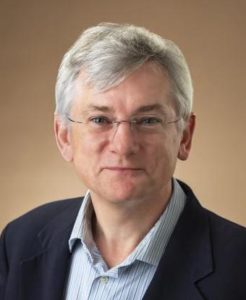Home⁄ Education⁄ Graduate and Undergraduate Programs⁄ Research Experience for Undergraduates (REU)⁄ Topological Defects in Liquid Crystals as Templates for Molecular Self-Assembly
Topological Defects in Liquid Crystals as Templates for Molecular Self-Assembly
Project Description:Liquid crystals are liquids within which molecules exhibit long range orientational order. In contrast to simple isotropic liquids, it is possible to introduce well-defined nanoscopic heterogeneities (called topological defects) into liquid crystals via confinement within micrometer-scale domains. My laboratory’s interest in topological defects in liquid crystals is motivated by our recent discovery that they can be used as a versatile source of templates for fabrication of organic nanostructures. By using fluorescence microscopy, cryogenic transmission electron microscopy and super-resolution optical microscopy in combination with photocrosslinkable amphiphiles, we are showing that it is possible to assemble molecules into nanostructures with unusual shapes (e.g., nanoscopic toroids) and properties within defects of liquid crystals. In some instances, we are finding that it is also possible to design the liquid crystal to optically report formation of a single molecular assembly within a defect, thus providing the basis of exquisitely sensitive sensors of important biological molecules (endotoxins from bacteria). This project will advance our exploration of topological defects as a versatile class of three-dimensional, dynamic and reconfigurable templates that can direct and report processes of molecular self-assembly. The project will investigate both fundamental questions related to the structure of topological defects in liquid crystals as well as technological opportunities (e.g., for biomolecular sensing).

